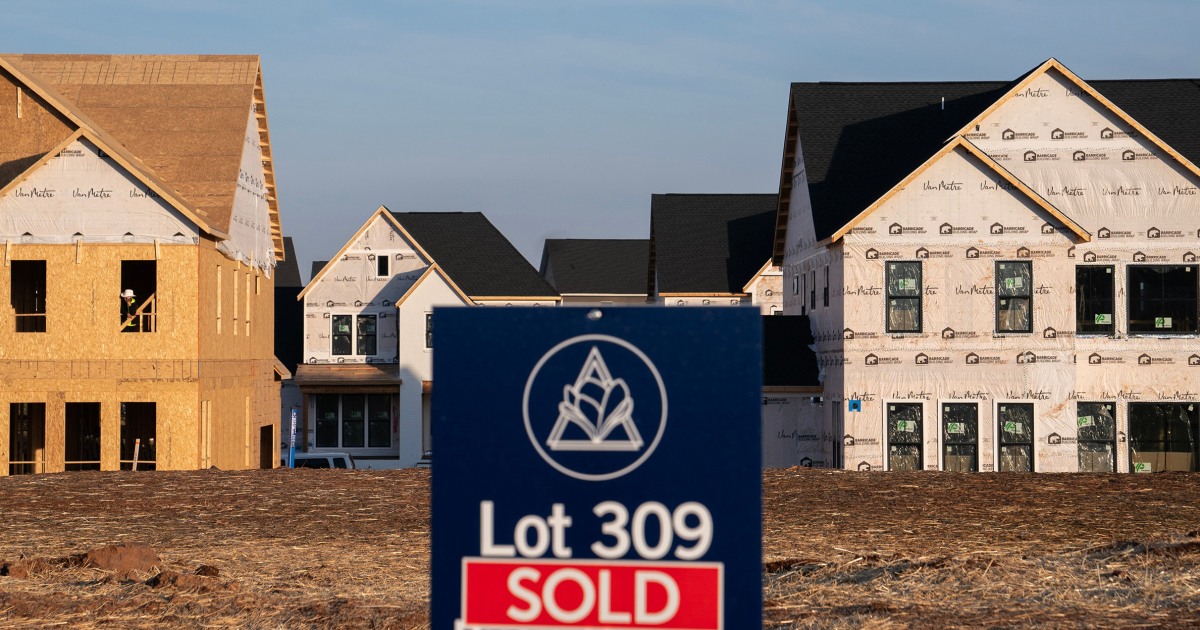Enlarge image
Chaos in the home office:
Hybrid work - partly in the office, partly at home - has become an integral part of the new work culture
Photo:
Arnaud Tinel / Hans Lucas / imago images
Mr Scheunemann, Mr Leimbach - in year two of the pandemic, work changed for many people. How often do you come to the office during the week?
Leimbach
: Monday is my home office day, on which I do internal coordination and jour fixes for most of the day. The rest of the week I can usually be found in one of our offices or with customers.
Scheunemann
: To be honest, I haven't yet established a real routine.
I observe - and this is also confirmed by my own surveys - that many colleagues are in the office on Wednesday.
I myself like to be at my office desk on Fridays because traffic is generally more pleasant on Fridays and I like to run errands in the city on Fridays.
Our analyzes have shown that the new working week at German companies will probably look like this in the future: three days in the office and two days elsewhere - and from this "elsewhere", 1.5 days at home.
So, just like before the pandemic, your employer has the same space and a separate desk for all employees?
Leimbach
: Even before the pandemic, we no longer had our own desks. Mathematically, we have eight desks for every ten people, whereby these are divided into full and temporary workplaces. So far, nothing has changed in terms of the size of the space, but some of the space will be used differently in the future. That means: More space for collaboration, communication and well-being, but less space for classic individual work.
Scheunemann
: The new world of work is a challenge for employers.
If all employees suddenly want to come to the office on Wednesday, they need all available workplaces.
You cannot dismantle this on Friday or Monday, when most people want to work from home.
That is why there is certainly room for reduction in space, but it is limited.
Quite a few company bosses mentioned office towers as "a thing of the past" in 2020
or openly discussed additional savings potential
in what
is often the second largest cost factor after personnel.
What is your impression - have companies in Germany actually saved office space since the beginning of the pandemic?
Leimbach
: Some industries have structural difficulties and have been cutting jobs for years.
Examples are the automotive and insurance industries, and in some cases also banks.
The home office discussion may come in handy for one or the other company to elegantly justify the declining need for office space.
But of course some of the work in these industries is also being relocated to the home office.
Overall, however, across all customers and industries, the desire for noticeably less space has been seldom expressed so far.
more on the subject
Home office: "Employees must be compensated for using their home at home" The interview was conducted by Lutz Reiche
Career: The new balance between home and officeBy Eva Buchhorn
Mobile working and more holidays: "Most employees don't even know that they could have time off" An interview by Florian Gontek
Scheunemann:
We'll see whether moving work to the home office saves costs.
I don't believe that employers will get their employees' home office completely free of charge in the long term.
Employees actually have expectations that the employer will contribute financially to setting up the home office.
The reasoning here is that when I'm not in the office, my employer also saves costs for me.
With regard to the area, one has to state soberly: In the current year, the demand for office space has increased by 12 percent by the end of the third quarter.
So the market is currently recovering.
According to Jones Lang Lasalle, new leases and sales of offices in large cities such as Frankfurt or Düsseldorf fell by more than two thirds every quarter. In this respect, one can at best speak of a moderate recovery after a sharp slump.
Scheunemann
: The effect of the corona crisis is of course still there, but it is getting smaller. According to an estimate by the Federal Employment Agency, the level of unemployment has increased by 232,000 due to the Corona crisis. However, especially in the service sector, companies have again increased their willingness to hire significantly; this goes hand in hand with a historically high willingness to invest on the part of companies, not only in Germany. On a global level, the capital invested by companies is expected to rise to 3.1 trillion euros in 2021, more than it has been since 2007. The companies are being driven, among other things, by increased spending on climate protection and catch-up effects due to the almost two-year standstill.
Not every euro invested in this country flows into concrete gold, otherwise we would probably have similarly dramatic conditions as on the Chinese real estate market.
Scheunemann
: Right, but part of this investment is also going into the real estate sector.
Postponed move decisions are slowly being reactivated, and we are noticing a growing willingness among companies to invest in office space again.
The knot has not yet fully loosened, but these are encouraging signs.
And to be honest, we are currently "moaning" at a high level.
At the end of 2021, the same amount of office space will have been let as in the upswing years of 2013 and 2014.
According to the real estate association IVD, retail rents in major German cities fell by an average of 13 percent this year, with a vacancy rate of 20 percent. Sure, the strong online trade has been affecting retailers for a long time. But when offices are empty, fewer customers come. Do you expect a similar development for the office property market when long-term leases here expire?
Scheunemann
: Our figures see a decline in prime rents in the German shopping metropolises by an average of 6 percent and a current availability of retail space of 15 percent.
Incidentally, this vacancy rate has remained almost constant compared to the previous year, that is, the market was under pressure even before the Corona and retailers also used the development as an opportunity to network their channels and better link their digital offerings with the stationary ones .
Well, apparently you have slightly different numbers. So you don't see the development in retail as a kind of early indicator for less office space demand in cities?
Barn man
: If many office workers work from home for a longer period of time, the inner-city retail sector naturally lacks many customers. The other way around, I cannot imagine that office workers no longer want to go to the office just because the retail landscape in the area has changed. In addition, the retail trade was partially completely closed during Corona, offices too, but office work could continue through home office and business was kept going. Working and shopping are two very different needs and therefore cannot be compared 1: 1. In addition, the pressure for rents tends to be on poor quality properties and / or locations.In frequency-dependent retail in particular, the rent for a shop around the corner can be very different from that in a prime location. This fine distinction does not exist in the office market.
In a more recent study, JLL reports a significant increase in vacancy rates for office properties. What are the reasons for this and how does it affect average rents?
Barn man
: That is roughly comparable to the current discussion about high inflation rates. We always have to look, where are we from? And just like with inflation, the vacancy rates were also at historically low levels in 2019/2020. We had a real deficiency, especially in the inner-city locations, which of course activated project developers. And increased construction activity in connection with the economic downturn in 2020 is now leading to increasing vacancies with a time lag. However, we do not expect double-digit vacancy rates as we saw in 2008 or 2009. If the jump from 2 to 4 percent happens now, that is a "dramatic amount" in relative terms, but in the reality of the real estate industry and in the historical context it is still so little that it has no impact on rents. On the contrary:In our estimation, rising construction costs and increasing demands on quality mean that rents will continue to rise.
Hybrid work is becoming an integral part of the new work culture. A third of German companies with more than 100 employees are planning permanent desk sharing, and a quarter even want to reduce space, according to a Hays study. Volkswagen will allow up to 4 days of home office in the future. That can't be without consequences for the office property market, can it?
Leimbach
: We know from many studies and surveys that people want an average of 1.5 days to work from home. In mathematical terms, that would be 30 percent less office space. In contrast, there are various effects. If you don't want to introduce desk sharing, you can't reduce the space. Anyone who wants to maintain the comfort of a little more distance in the office even after the pandemic needs more space per workstation. Anyone who wants to create more space for cooperation and encounters needs more space than in a classic desk office. In total, it all roughly balances out. And if I may add that: Anyone who sends their workforce to the home office four days a week risks alienation from the company, dissatisfaction and ultimately dismissals.
"New Work" cannot be reduced to the place of work. Anyone who wants to be attractive as an employer also has to rethink the office and redesign the work environment. Foosball table and coke machine should no longer be enough. What requirements does "New Work" place on real estate planners in this regard?
Leimbach
: If I do not come to the office
must
, then you have the office is so attractive that I go
will
.
This requires office space in which people feel comfortable and which support them in their work.
Only then can they be productive.
And because the fight for talent is definitely not going to get any easier, from the employer's point of view, the office should also create identity and convey a sense of belonging.
How the office ultimately looks is very individual and requires dealing with the work processes and structures of the company and its employees.
In any case, the standard office is dead. That is good news, because it opens up great opportunities that can even noticeably strengthen the innovative strength and thus the future viability of companies.










/cloudfront-eu-central-1.images.arcpublishing.com/prisa/KMEYMJKESBAZBE4MRBAM4TGHIQ.jpg)



